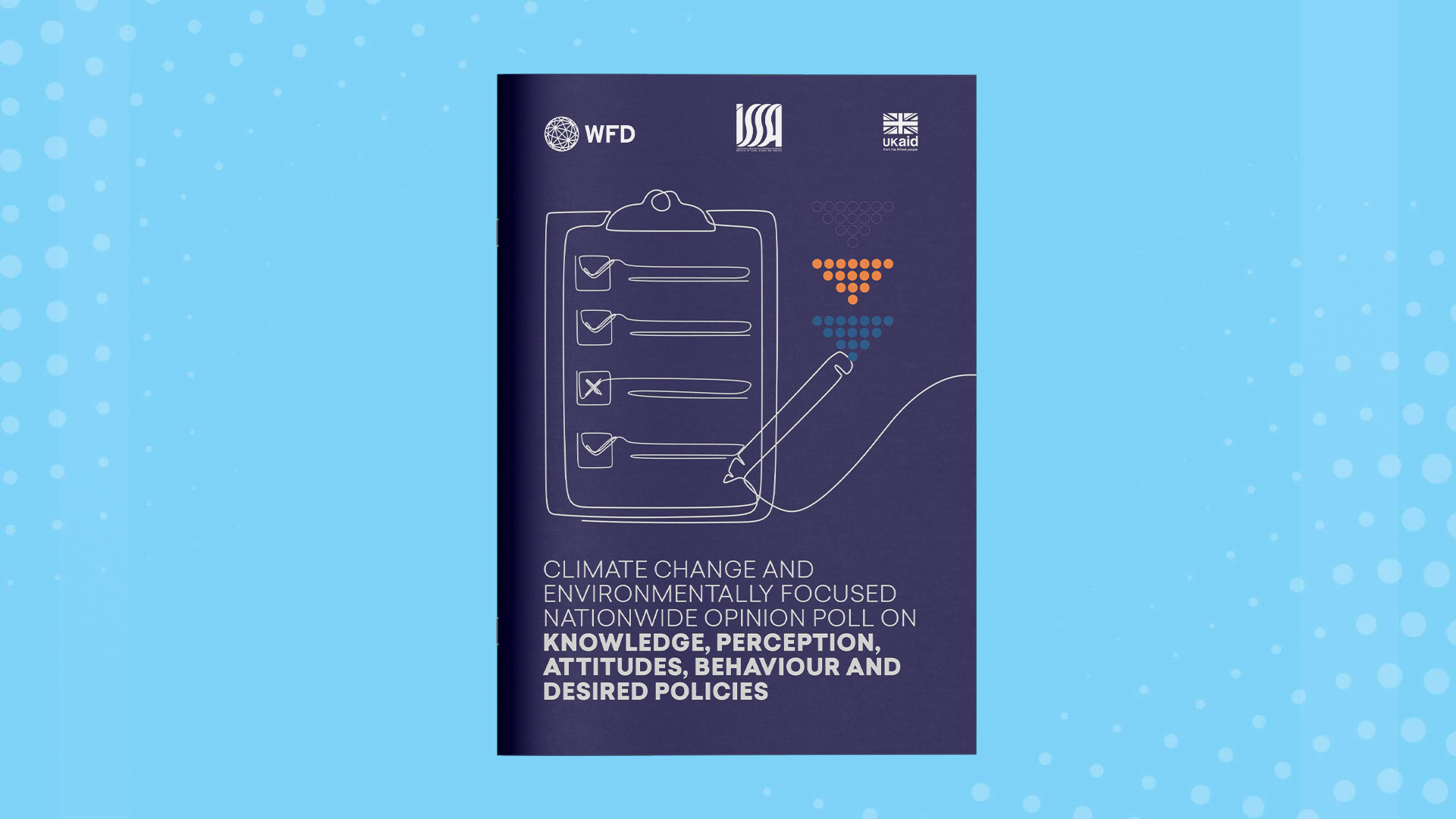Under the UKAID supported program, "Advancing Environmental Protection, Climate Change, and Democratic Resilience in Georgia: Phase 2," the Westminster Foundation for Democracy (WFD) has released key findings from a groundbreaking public opinion survey. The survey, developed in collaboration with the Institute of Social Studies and Analysis (ISSA), sheds light on the knowledge, perceptions, attitudes, and policy preferences surrounding environmental and climate change issues in Georgia.
The primary objective of the survey was to comprehensively understand public sentiment regarding environmental and climate issues throughout Georgia. The survey delved into perceptions and attitudes towards climate change, awareness levels, behaviors aimed at mitigating climate change, and opinions on existing climate change policies.
Main findings of the Quantitative Research:
- The share of respondents in both rounds of the research (2022 and 2023) who indicate that the damage caused by climate change is significant (very significant or more significant) for them personally, as well as for the city/village, region, country and the world increases symmetrically with the expansion of the assessment unit (person, city/village, region, country, world). A similar tendency is observed in terms of the socio-demographic characteristics of respondents.
- Over 60% of respondents in both the 2022 (70%) and 2023 (63%) surveys believe that the accelerated pace of climate change is either completely or partially human-induced. Every other respondent in Tbilisi and over 60% in West and East Georgia demonstrate the same attitude. Analyzing the issue in terms of educational attainment reveals that the majority of respondents with higher education degrees (70%) are aware of the negative role people (population) play in changing the climate; the same opinion is found among 58% of those without higher education and 48% among representatives of ethnic minorities.
- The population of West and East Georgia are more likely to notice the consequences of climate change as compared to Tbilisi residents, which, to some extent, is also due to different lifestyles. Namely, people in the regions are more commonly engaged in agriculture (growing crops, raising livestock, etc.) and, thus, changes, such as frequent droughts (West Georgia - 89%; East Georgia - 90%; Tbilisi - 80%) and increase in the plant and livestock diseases (West Georgia - 89%; East Georgia - 92%; Tbilisi - 68%) have a direct impact on their economic activity. Similarly, the effects of climate change are more noticeable for the rural population than for their urban counterparts. 91% of ethnic minorities note that changes in climate have had a negative impact on human health in recent years.
- The population of Georgia considers Imereti/Racha-Lechkhumi (52%), Adjara (39%), and Guria (30%) most vulnerable to changes in climate. For representatives of ethnic minorities, Adjara ranks first among the above vulnerable regions.
- Manufacturing (50%) and transportation (50%) are identified as economic sectors with the most negative impact on climate change.
- The results of both 2022 and 2023 research confirm that the need to act on climate change is not a topic of daily discussions for respondents. In general, based on both rounds, climate change is not considered an urgent issue: 59% of those surveyed in 2023 and 54% of those surveyed in 2022 say the topic comes up in their conversations once a month or less frequently. According to the 2023 survey, a) respondents aged 35-44 (93%) and b) those with higher education are more likely to discuss the need to act on climate change (with any frequency).
- In both rounds of the survey, respondents identify the population/citizens (2023 - 59%, 2022 - 72%) and the Government of Georgia (2023 - 47%, 2022 - 42%) as the main stakeholders in stopping/mitigating climate change. In the previous round, the role of international organizations (31%) was also considered significant; however, the rate has decreased to 22% this year. Therefore, according to respondents, people, as a group involved in practical activities, and government, as a regulatory body, are the main actors.
The survey, conducted by the Institute of Social Studies and Analysis (ISSA), was commissioned by the Westminster Foundation for Democracy (WFD).
The WFD encourages stakeholders, policymakers, and the public to delve into the detailed report to gain a comprehensive understanding of the public's views on climate change in Georgia. This invaluable information is crucial for informed decision-making and the development of effective environmental policies.
Georgian Version of the Report
The survey explored public perceptions and attitudes towards climate change, levels of awareness, actions taken to mitigate climate change, and opinions on current climate change policies. You can download the knowledge product in pdf format.

